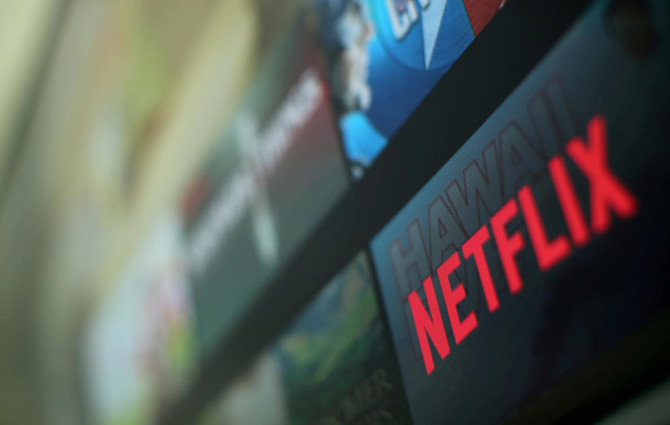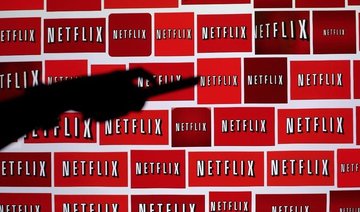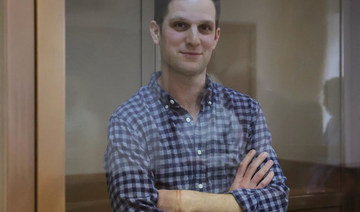LOS ANGELES: A growing number of US cable operators are forming alliances with Netflix Inc, a shift that is helping the streaming pioneer add customers as its largest single market matures.
No. 3 distributor Charter Communications Inc. is expected to make Netflix available through its set-top boxes, joining more than a dozen top US pay television operators adopting a model first rolled out in Europe. Some US providers could start selling the streaming service as part of their Internet and video packages.
Altice NV is trying that approach in France, and the company aims to extend the deal to the US, two sources with knowledge of the matter said during the past three weeks. They requested anonymity because the discussions are private.
“Our whole model is about cooperation with many of the (streaming) providers,” Altice USA Chief Executive Dexter Goei told reporters in May.
Netflix also indicated it wants to take the arrangement elsewhere, though the timing of any new deals is uncertain.
“We’re now looking at proposals for including Netflix in some services and beginning to learn the bundling part of the business,” Netflix CEO Reed Hastings said during a post-earnings webcast in July. “We’re interested in expanding that.”
Additional tie-ups could help Netflix hook new users in the US, a market analysts have said is nearing saturation while growth in foreign markets is booming.
The number of subscribers is the key metric for Netflix investors, and the breakneck growth has made the company a Wall Street darling.
Netflix reported 51.92 million US streaming customers as of June 30, and 52.03 million in international territories, handily beating analysts’ forecasts.
The addition of Netflix to set-top boxes helped the company top expectations for the US market, Cowen & Co. analyst John Blackledge said.
The closer ties with pay TV providers represent an about-face from the early days of Netflix streaming, which started in 2007. Many in the pay TV industry viewed the digital upstart as a challenge to their longtime business of selling bundles of channels delivered via cable wires or satellites.
But as Netflix soared in popularity, distributors began concluding it was more beneficial to welcome Netflix because their customers were using the service anyway.
Cable executives see the partnerships as a way to help fight cord cutting, the dropping of pay TV service, and to promote higher-speed Internet service. In some cases, distributors receive a cut of subscription revenue when they sign up new Netflix users.
The set-top integrations began in 2013 with Virgin Media in Britain. US partnerships started in 2014 with a few smaller distributors including RCN Telecom Services.
For RCN customers with TiVo boxes, Netflix is listed as a channel in the on-screen lineup, requiring just a press of a button to switch from a cable network.
RCN viewers who have not subscribed to Netflix can do so on the spot, starting with a one-month free trial. More than 80 percent become paying Netflix customers, RCN Chief Operating Officer Chris Fenger said in an interview. “There is a very high conversion rate.”
By the end of 2016, 13 of the top 25 US pay TV distributors had similar arrangements with Netflix, according to Blackledge.
US market leader Comcast Corp. in November embedded Netflix into its Xfinity X1 set-top box, which is used by 55 percent of its 21.5 million residential video customers. Thirty percent of X1 users have logged into Netflix, either with an existing account or by signing up for a new one, the company said in May.
Charter also plans to integrate Netflix, CEO Tom Rutledge has said. A launch date has not been set.
US cable firms embrace former foe Netflix as TV viewing shifts
US cable firms embrace former foe Netflix as TV viewing shifts

Global audiences suspicious of AI-powered newsrooms, report finds

- Reuters Institute for the Study of Journalism found that people are suspicious of AI creating news content, especially on sensitive subjects like politics
- Survey also highlights the increasing role of news influencers, stressing the need for better audience engagement within newsrooms
LONDON: Global concerns about the use of AI in news production and misinformation are growing, a report published by the Reuters Institute for the Study of Journalism found, posing fresh challenges to newsrooms already struggling to engage audiences.
The institute’s annual Digital News Report published on Monday, which this year is based on surveys of nearly 100,000 people across 47 countries, offers a picture of the hurdles news media faces in lifting revenue and sustaining business.
Newsrooms globally are working to address a new challenge with generative artificial intelligence, as tech giants and startups like Google and OpenAI build tools that can offer summaries of information and siphon traffic from news websites.
But the report found that consumers are suspicious about the use of AI to create news content, particularly for sensitive subjects such as politics.
According to the survey, 52 percent of US respondents and 63 percent of UK respondents said they would be uncomfortable with news produced mostly with AI. The report surveyed 2,000 people in each country, noting that respondents were more comfortable with behind-the-scenes uses of AI to make journalists’ work more efficient.
“It was surprising to see the level of suspicion,” said Nic Newman, senior research associate at the Reuters Institute and lead author of the Digital News Report. “People broadly had fears about what might happen to content reliability and trust.”
Concerns about false news content online rose by three percentage points from last year, with 59 percent of survey respondents saying they were worried. This figure was higher in South Africa and the US at 81 percent and 72 percent, respectively, as both countries hold elections this year, the report said.
Another challenge facing news organizations is the general unwillingness of audiences to pay for news subscriptions. Following some growth during the pandemic, 17 percent of respondents across 20 countries said they paid for online news, a figure that has been unchanged for the past three years, the report said.
A significant proportion of news subscribers in the US were also likely to be paying discounted rates due to trials or promotions, with 46 percent paying less than the full price for their subscriptions.
TURNING TO ALTERNATIVES
News influencers are playing a bigger role than mainstream media organizations in delivering the news to users of popular online platforms like TikTok.
In a survey of more than 5,600 TikTok users who said they used the app for news, 57 percent said they mostly paid attention to individual personalities, versus 34 percent who said they mainly followed journalists or news brands.
The findings show that newsrooms need to build a direct relationship with their audiences while also “strategically using the platforms to connect with people who are trickier to reach, like younger audiences,” Newman said. “We see that these influencers have a bigger role on the platforms.”
Vitus “V” Spehar, a TikTok creator with 3.1 million followers, was one news personality cited by some of the survey respondents. Spehar has become known for their unique style of delivering the top headlines of the day while laying on the floor under their desk, which they previously told Reuters is intended to offer a more gentle perspective on current events and contrast with a traditional news anchor who sits at a desk.
The Digital News Report surveyed people in the US, UK, France, Argentina and Brazil, asking them to name up to three mainstream or alternative accounts they follow for the news.
The top 10 individuals cited by respondents in the US are most known for offering political commentary rather than original newsgathering, the report noted. These personalities included Tucker Carlson, a former Fox News anchor, Joe Rogan, who hosts the top podcast on Spotify and David Pakman, a progressive talk radio host.
The Reuters Institute for the Study of Journalism is funded by the Thomson Reuters Foundation, the philanthropic arm of Thomson Reuters.
Russia to hold espionage trial of US reporter Gershkovich behind closed doors

- US reporter was detained in March on charges of espionage that carry up to 20 years in prison
MOSCOW: Russia will hold the espionage trial of detained US reporter Evan Gershkovich, who denies charges of collecting secrets for the Central Intelligence Agency (CIA), behind closed doors later this month, a court in city of Yekaterinburg said on Monday.
Gershkovich was detained by the Federal Security Service (FSB) on March 29, 2023, in a steak house in the Urals city of Yekaterinburg on charges of espionage that carry up to 20 years in prison.
“According to the investigation authorities, the American journalist of The Wall Street Journal, Gershkovich, on the instructions of the CIA, in March 2023, collected secret information in the Sverdlovsk region about the activities of the defense enterprise JSC NPK Uralvagonzavod for the production and repair of military equipment,” the Sverdlovsk Regional Court said.
“The process will take place behind closed doors.”
The first hearing is scheduled for June 26, the court said.
Russia has said Gershkovich was caught “red-handed” and the FSB, the main successor to the Soviet-era KGB, said he was trying to obtain military secrets.
Gershkovich, the first American journalist to be detained on spy charges in Russia since the Cold War over three decades ago, denies the charges.
The White House has called the charges “ridiculous” and President Joe Biden has said Gershkovich’s detention is “totally illegal.” The Wall Street Journal denies he is a spy and has called for his immediate release, as has his family.
CNN rules for first US presidential debate: no props, muted microphones

- CNN said candidates eligible to participate must appear on a sufficient number of state ballots to reach the 270 electoral vote threshold needed to win and receive at least 15 percent in four separate national polls
WASHINGTON: The first US presidential debate between incumbent Joe Biden and Republican rival Donald Trump on June 27 will include two commercial breaks, no props and muted microphones except when recognized to speak, CNN said Saturday. In May, the candidates agreed to face off in two debates including one this month that will be moderated by CNN anchors Jake Tapper and Dana Bash in Atlanta, while the other on Sept. 10 will be hosted by ABC.
CNN said Saturday both candidates will appear at a uniform podium during the 90-minute debate, podium positions will be determined by a coin flip and candidates will be given a pen, a pad of paper and a bottle of water but cannot use props.
“Microphones will be muted throughout the debate except for the candidate whose turn it is to speak,” CNN said.
CNN, a division of Warner Bros Discovery, said the moderators “will use all tools at their disposal to enforce timing and ensure a civilized discussion.”
During the two commercial breaks, campaign staff may not interact with their candidate, and there will be no studio audience.
CNN said candidates eligible to participate must appear on a sufficient number of state ballots to reach the 270 electoral vote threshold needed to win and receive at least 15 percent in four separate national polls. CNN said it is “not impossible” Robert F. Kennedy Jr., who is running as an independent, could qualify, saying he has received at least 15 percent in three qualifying polls to date and has qualified for the ballot in six states, making him eligible for 89 electoral college votes.
Debates, which will draw a US live television audience in the tens of millions, are fraught with risks for both candidates, who face a close race. Biden has three preferred debate topics, according to a campaign memo viewed by Reuters: abortion rights, the state of democracy and the economy.
Trump refused to debate his rivals during the Republican nominating race. His team has pointed to immigration, public safety and inflation as key issues ahead of the debate.
Indonesia minister threatens to shut down X over adult content

- X has recently updated its policies to permit consensually produced adult content
- Minister Budi Arie Setiadi said it had sent a letter to X to demand revision of policy
JAKARTA: Indonesia is prepared to shut down social media platform X if it does not comply with a regulation barring adult content, the country’s communications minister said on Friday.
Indonesia, the world’s biggest Muslim-majority country, has strict rules that ban the sharing online of content deemed obscene.
Minister Budi Arie Setiadi told Reuters he had sent a warning letter to X related to this matter.
“We will certainly shut its services down,” he said, pointing to Indonesia’s electronic information and transaction (ITE) law that can carry a six-year jail sentence if someone spreads pornographic content.
His comments in an interview come after the social media platform recently updated its policies to permit consensually produced adult content.
X, owned by billionaire Elon Musk, has not responded to Indonesia’s warning letter, Budi said, adding the government would send more letters before deciding on a potential closure.
X, formerly known as Twitter, did not immediately respond to a request by Reuters for comment.
Indonesians are big users of social media and X has 24.85 million users in the country, according to data gathering business Statista.
New ‘Million Dollar Island’ seasons to be produced at NEOM

- Talpa Studios recommissions hit reality show for MBC in the Middle East, NET5 in the Netherlands
DUBAI: Talpa Studios, which was founded by John de Mol, the creator of popular shows “The Voice” and “Big Brother,” has recommissioned its reality show “Million Dollar Island” for new seasons in the Middle East and the Netherlands.
The new seasons — titled “Million Dollar Land” or “Ard Al-Million” for MBC in the Middle East and “Million Dollar Desert” for NET5 in the Netherlands — will be produced at Saudi Arabia’s NEOM production hub, in collaboration with regional production house Blue Engine Studios.
This will be the second season of “Ard Al-Million.” The first season aired on MBC Group’s TV channels MBC1, MBC IRAQ, and Shahid last May.
Produced by Monday Media, “Million Dollar Island” also ran for two seasons in the Netherlands. The new season, however, marks a shift to the desert-oriented format and will be shot at NEOM.
Blue Engine Studios played a key role in facilitating the deal between Talpa Studios and NEOM’s media sector and aims to bring more countries to NEOM’s production hub.
Its work on the Dutch edition included facilitating Monday Media’s production of the latest season, such as sourcing suppliers, permits and equipment as part of the studio’s commitment to establish a hub for the show at NEOM.
Ziad Kebbi, CEO at Blue Engine Studios, said that the “collaboration with NEOM and Talpa Studios underscores our commitment to producing high-quality entertainment that resonates with audiences.”
Unlike previous seasons, which featured 100 contestants, the new seasons will see 30 contestants test their endurance as they navigate the challenges of life in the desert.
There will be other changes to the format revealed when the new seasons go on air.
“These spin-offs preserve “the core principles that have made the original so compelling, while introducing innovative new elements that are perfectly suited to NEOM’s stunning desert scenery,” said Sebastian van Barneveld, director of international distribution at Talpa Studios.
Partnerships such as these ensure “a robust pipeline of productions and afford opportunities to accelerate our media ecosystem while training the next generation of talent,” said Wayne Borg, managing director of NEOM Media Industries.
The broadcast date of the new seasons is yet to be announced. “Ard Al-Million” will air on MBC1 and Shahid.


















